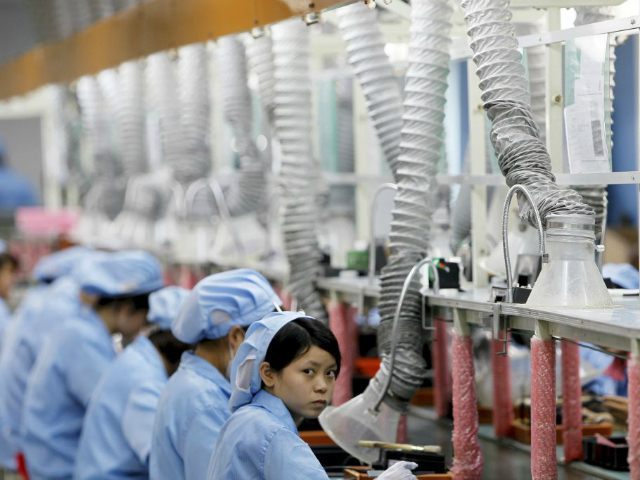Beijing is trying to nip the growing Chinese labor movement in the bud, as ABC News reports the detention of seven labor activists in Guangdong province, including three leaders of the movement, “on charges they improperly intervened in labor disputes.”
Since intervening in labor disputes is the core mission of labor activists, that is a fairly loud shot across the bow of other potential troublemakers.
As ABC notes, the slipping Chinese economy, and growing discontent with the ineffectual “official” All-China Federation of Trade Unions, led to a doubling of labor disputes in 2015. Migrant workers are said to be especially disenchanted with the official union, turning instead to grassroots activists. It is not surprising to learn a state-run union is not terribly effective at representing the interests of workers against state-run business operations.
Authoritarian governments do not care much for grassroots activism, and they also tend toward paranoia, so Beijing began muttering about how foreign agents were using grassroots labor groups to “sabotage the unity of the working class and undermine the state-sanctioned union,” as ABC puts it.
The state-run Xinhua news service alleged the activists detained in Guangdong have “long received financial assistance from overseas while intervening in domestic labor disputes, gravely disturbing public order and severely trampling upon workers’ interests,” as related by the Wall Street Journal. The severe trampling of worker interests involves convincing them to make “unrealistic demands” for wages and benefits, which supposedly puts their “safety and financial interests at risk.”
For good measure, leading activist Zeng Feiyang was accused of fraud, adultery, and embezzlement.
“Xinhua didn’t name Mr. Zeng’s foreign donors. Activists say China Labour Bulletin—a Hong Kong-based watchdog—has been a source of funding for Mr. Zeng’s nonprofit, though the scale and timing of the donations weren’t clear. A spokesman for China Labour Bulletin declined to comment on the matter,” the WSJ continues.
Critics put the labor crackdown in context with Beijing’s other repressive measures against social-media dissent, civic activism, and the importation of Western ideals.
They also denounced the Chinese government’s fondness for manipulating news reports to make the public think cases against troublesome activists are closed before the trials even begin, including rumors of swift “confessions” by the accused. The activists in Guangdong were detained for almost three weeks before the Chinese government got around to informing its people about the charges against them.

COMMENTS
Please let us know if you're having issues with commenting.